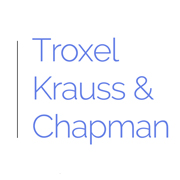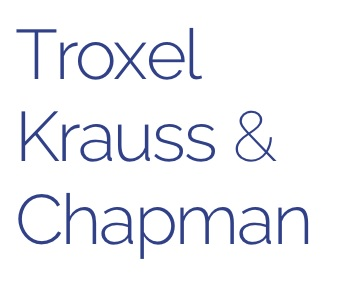Medicare and Medicaid Kickbacks
Medicare & Medicaid Kickbacks are a form of health care fraud perpetrated by individuals who bribe doctors with the intent of unlawfully gaining something in exchange. Giving anything of value to healthcare providers in exchange for patient or treatment referrals paid for by Federally-funded programs constitutes a violation of the “Anti-Kickback Statute.” Any willful infringement of this law is punishable by fine, imprisonment or loss of business from government programs such as Medicare, Medicaid and Tricare. Kickbacks are often used to facilitate other forms of fraud and are prosecuted in tandem with violations of the False Claims Act (FCA).
Why are Medicare Kickbacks dangerous?
Medicare kickbacks represent a danger to the integrity of the healthcare system, as they encourage physicians to base their decisions on personal financial interest rather than the medical needs of their patients. Illegal payments have been used to defraud the US government of billions of dollars and have harmed countless lives. At the behest of a compromised healthcare provider, patients have been sent to subpar medical facilities, given excessive or incorrect medication, or subjected to unnecessary treatments and surgeries.
Kickbacks encourage an inherent negligence that places the health and welfare of patients at risk. Medicare and Medicaid recipients have proven to be particularly vulnerable to these schemes. Because of their precarious clinical conditions, nursing home and hospice residents are less likely to receive scrutiny after they pass away. Individuals lacking in financial resources may lack the means to assert their rights in the face of medical malpractice.
Some organizations that have used kickbacks for referrals include:
- Hospices
- Hospitals
- Medical Supply Vendors
- Medical Service Providers
- Nursing Home Chains

The cost of Medicare Kickbacks
Bribery and fraud remain a rampant and expensive issue that saps government healthcare programs of resources and threatens their effectiveness. Since 2007, the Medicare Fraud Strike Force has charged more than 2,900 people for over $8.9 billion worth of false billings and fraud. Combating these remains a top priority for government investigators today. A recent June 2016 sweep by the Department of Justice (DOJ) charged 301 people for over $900 million worth of fraudulent claims, which included instances of embezzlement, falsifying patient records, and widespread violations of the Anti-Kickback Statute.
Types of Kickbacks
The types of kickbacks that can be used to defraud Medicare are innumerable. While direct cash payments are not unheard of, they are far more likely to be presented in more subtle forms with an equivalent value.
Some of the more common examples include, but are not exclusive to:
- Material Gifts: e.g. golf clubs, gold pens, etc.
- Live Event Tickets: e.g. sporting events, shows, etc.
- Lucrative Speaking Engagements: Paid with exorbitant fees or used as justification for luxury holidays or vacations
- Unauthorized Commissions Structure: Only employees with a W-2 status are eligible for commission-based payments when dealing with Medicare/Medicaid/Tricare. Contractors with a 1099 status are not permitted
- Free Labor: Technicians, nurses, and the like who can work for free in their hospital or clinics
- Free Billing: Billing services or consulting advice
- Hirings: Medical companies cannot use someone inside a referral source, or otherwise
aiding career prospects. People with “bona fide” credentials are still eligible, however - Space Rental: Illegal when the price is not within fair market value
- Paid Preceptorships: Physicians may get paid to work as preceptors in nursing or medical schools
- Phony Research Grants: Thousands of dollars can be spent to fund fake research projects which are then granted to conniving doctors
The Stark Law and the Anti-Kickback Statute
The “Stark Law” specifically prohibits physicians from making any Medicare and Medicaid referrals to an entity that they have a financial relationship with. This is generally applied to a doctor’s family members or medical institutions in which they own a stake. However, accepting kickbacks effectively establishes a financial relationship between doctor and entity, putting them in violation of the Stark Law. As the penalties of this statute are less severe and its targets more narrow than the Anti-Kickback Statute, the Justice Department will often forgo one in favor of the other.
An important element of the Anti-Kickback Statute is the concept of “safe harbor.” This refers to business practices that might be interpreted as kickbacks, but are permitted if the conditions are correct, such as:
- Referral services
- Space Rental
- Equipment Rental
- EHR Items and Services
- Discounts
- Electronic Prescribing Items and Services
- Health Centers
- Payments made to bona fide employees
- Personal services and management contracts
- Warranties
- Practitioner recruitment
- Ambulatory surgical centers
Famous examples of Medicare Kickbacks
Dr. Eugene Goldman’s kickback scheme
On June 2013, Dr. Eugene Goldman, Medical Director of Home Care Hospice Inc, was found guilty of four counts of violating the Anti-Kickback Statute. From 2003 to 2008, Goldman received $263,000 in funds from the hospice which noted as his salary but were, instead, kickbacks for illegal referrals. The doctor was eventually sentenced to 51 months in prison and fined $309,000.
The Sacred Heart Hospital fraud
On July 2015, Edward Novak, former owner of Chicago’s “Sacred Heart Hospital,” was sentenced to 54 months in prison and ordered to pay $10.4 million in forfeiture for masterminding a kickback scheme that ensnared and mistreated patients over a 12-year period. Healthcare providers were paid hundreds of thousands of dollars in exchange for referring Medicare and Medicaid patients to Novak’s hospital, where they were subjected to substandard sanitary conditions and unnecessary medical procedures.
The Brooklyn clinics network scam
On June 2016, the DOJ charged five Brooklyn residents with conducting an eight-year, $86 million Medicare scam in which kickbacks were paid to doctors and other healthcare providers in exchange for patient referrals and recommendations for unnecessary surgery. They also paid cash to impoverished Medicare beneficiaries who were willing to undergo non-essential medical procedures, as a way of billing the government for more business. All told, it is alleged that the group was able to funnel $36 million into their possession through private shell companies.
How to Report Medicare Kickbacks
Medicare kickbacks can be difficult to detect, as patients, doctors and institutions are generally regarded as having authoritative judgment in their decisions. It can take a long period time and several tragic incidents before a pattern of malfeasance can be established.
Due to the variety and purposes of Medicare kickbacks, they can be uncovered at almost every stage of the healthcare process, however. Doctors, patients, sales representatives and institutional executives are just a few of the groups who have served as effective qui tam whistleblowers in past cases brought against offenders.
If you work as an insider for a company that provides health care services to the general public, you may have witnessed this type of illegal behavior. Call us now or fill our form, our lawyers will help you take the next step and will assist you through the entire process of reporting the Medicare or Medicaid Fraud.


